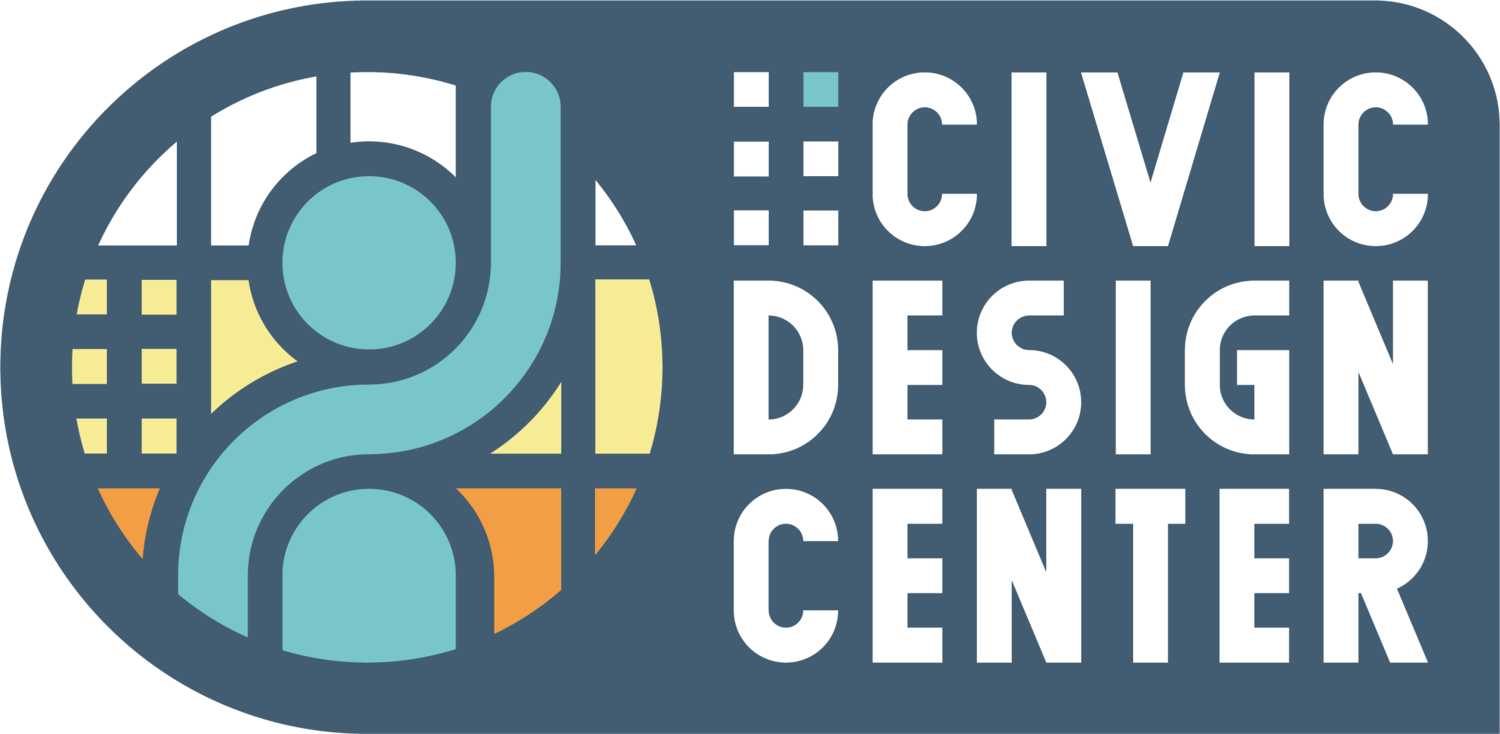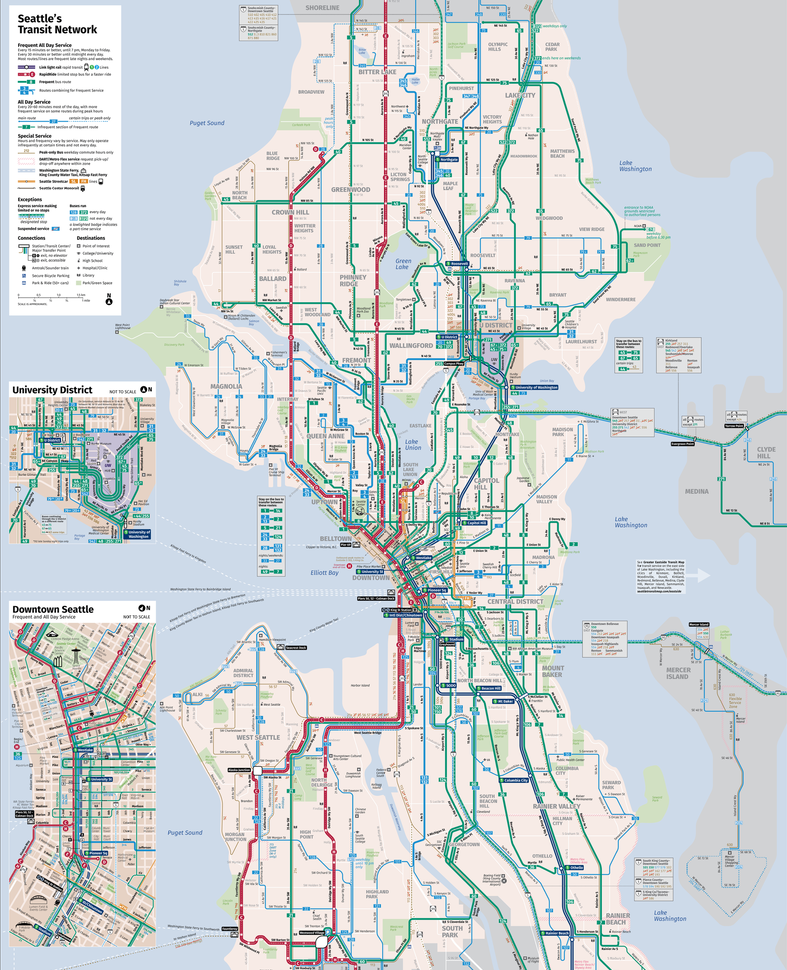Employers Must Incentivize Transit
By Lauren Grote, Community Engagement Intern
5 min read The following blog provides context for Nashville’s current state of employer and university-incentivized transportation, from data to public perception. Seattle is presented as a precedent for a well-used employer-incentivized transit program that Nashville can strive for. However, Nashville’s program is unique because it is extremely affordable for businesses to opt into.
Lauren Grote
As a current senior at Vanderbilt University from the suburbs of Chicago, I am shocked as I reflect on the differences between the use of public transit in Chicago versus Nashville. In Chicago, I used both the Metra and “L” trains as well as the bus system almost daily. I commuted to work on the Metra, and I rode the “L” and buses to get to surrounding neighborhoods, work events, and the airport. I found Chicago’s public transit to be easy to navigate and more convenient and cost effective than rideshare options like Uber or Lyft.
When I came to Nashville for school, public transit did not seem to be integrated into the city’s culture. I rode the bus for the first time during my senior year at Vanderbilt, after learning about Vanderbilt’s partnership with WeGo through my capstone internship at the Civic Design Center. It was news to me that Vanderbilt students can ride WeGo buses for free with their VU IDs, but I was excited to try it out. As a student, the vast majority of what I need has been accessible on campus, lowering the need for public transit, but public transit has been so helpful for commuting to my capstone site, and it has really opened up opportunities to explore more of Nashville.
As public transit became more integrated into my routine, I was inspired to talk to my peers about their experiences with Nashville transportation. I talked to students from across grade levels, and they commonly told me that they have never used public transit or that they have used it only once. Many expressed that the bus system was confusing, which deterred them from riding again and that it is more convenient to use rideshare apps or grab a ride with a friend who has a car. They also expressed some safety and reliability concerns as well as a general lack of knowledge about public transportation options.
WeGo tries to promote public transit through its business partnerships, providing a program that allows for employees to ride for free with their company ID card, and Vanderbilt is one example of a business that partners with WeGo. This partnership provides all full-time and part-time Vanderbilt students, faculty, staff, and postdocs with free access to WeGo public transit with their physical Commodore Card (MoveVU). Lindsey Ganson and Miriam Leibowitz from Vanderbilt’s Office of Transportation and Mobility shared some of Vanderbilt’s current efforts towards reaching those who are both new and native to the Vanderbilt community. Some marketing efforts include fliers, social media, digital ads, and events such as bus excursions, but there is still a gap between having public transportation and utilizing it among Vanderbilt community members. When I chatted some more with Lindsey, she shared that only 4% of graduate students, faculty, and staff report public transit as their primary mode of transportation for commuting, showing lots of opportunity to grow the program (MoveVU Vision and Goals).
Pie charts illustrating the university’s 2018 mode share and the 2022 mode share showing great strides already
Zooming out to a larger scale with Rick Rodriguez from WeGo Public Transit, we can see that 37 local organizations utilize partnerships with WeGo. This is a tiny fraction of a percent when compared to the over 60,000 business establishments in Nashville, according to the 2023 Nashville Regional Economic Development Guide.
If Nashville wants to move more people around effectively, we need to look at cities like Seattle where public transit is incentivized. The robust bus system in Seattle has created an ecosystem that discourages driving as the bus is both cost and time effective. Seattle has successfully integrated public transportation into their urban design through programs such as ORCA LIFT, making transportation accessible for lower income individuals, and ORCA Opportunity, providing students with free ORCA cards year-round (seattle.gov).
Seattle’s Intelligent Transportation System (ITS) also boosts the city’s public transportation. This technology contributes to a safe and efficient environment through vehicle, bike, and pedestrian detection, an app to track congestion and travel time, technology equipped to change traffic signals based on road conditions and to give approaching buses a green light, and communication with emergency responders to manage incidents (Seattle Technology Program). Seattle’s efforts towards improving movement around the city are paying off, as the 2017 Commute Seattle survey reports that more than 70% of downtown’s estimated 247,000 daily commuters opt for transit, ridesharing, biking, walking and teleworking, leaving less than 30% of commuters to drive alone to work (seattle.gov). Seattle’s ITS has proved to be very helpful, and Nashville’s Connect Downtown Plan intends to implement similar technology, such as upgraded signals, which will have a ripple effect on the rest of the transit network (nashville.gov).
Benefits of WeGo Ride
Low barriers to entry and great benefits to employees, makes a WeGo partnership an attractive option for businesses looking to improve their sustainability efforts and accessibility for employees. In my conversation with Rick Rodriguez, he let me know that it is only $25 per person annually for a business to utilize WeGo’s annual partnership program. However, the minimum number of employees is 50 people to opt into the program. While this is excellent for the large companies coming to Nashville, this is a huge barrier for small organizations.
In comparison, Seattle’s ORCA Business Passport program varies in cost depending on the location of the company’s worksite (Commute Seattle). Prices in King County range from$159.84 to $315.48 per employee annually (King County Metro's Passport Zone Cost Estimator). It’s a larger dollar amount per person, however there is only a 5 person minimum to participate. Employer funded access to transit is such a small step for Nashville that will move the city towards becoming more sustainable and accessible for all.
If you are an employer looking to increase benefits to your employees while also encouraging more sustainable modes of transportation, find out more about WeGo Ride now! You can email Rick Rodriguez to learn more. While we understand that the culture to incentivize transit needs to come from the top, there are organizations that will support you if you want to take control of your own transit options. For instance, Walk Bike Nashville has a special system where all of their members donating just $50/year have access to WeGo Ride and B Cycle memberships at company rates. Check out their website to learn more.






